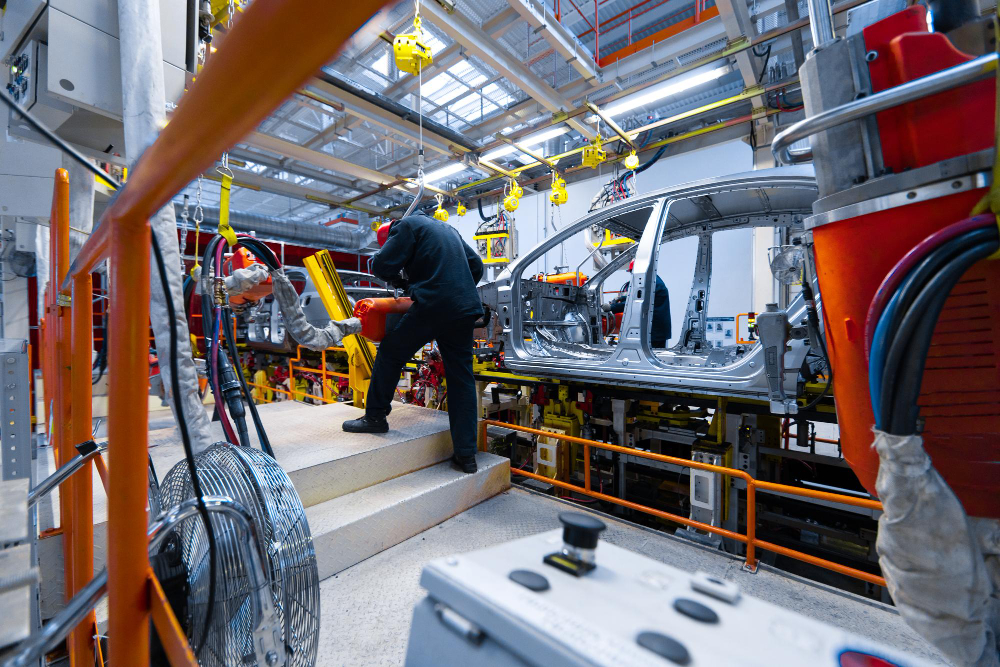Selling industrial machinery can be a complex process that requires a great deal of knowledge and expertise. This is because industrial machinery is often expensive, specialized, and highly technical. Therefore, it is important to have a solid understanding of the industry, the equipment, and the market in order to successfully sell industrial machinery.
One of the key factors to consider when selling industrial equipment is the target market. Different types of machinery are used in different industries, and it is important to understand the specific needs and requirements of each industry. For example, the machinery used in the food processing industry will be different from the machinery used in the automotive industry. Therefore, it is important to have a good understanding of the target market and the specific needs of potential buyers.
Another important factor to consider when selling industrial machinery is the condition of the equipment. Buyers are often looking for equipment that is in good working condition, and may be willing to pay a premium for equipment that has been well-maintained. Therefore, it is important to ensure that the equipment is clean, well-maintained, and in good working order before trying to sell it.
Understanding Industrial Machinery and Equipment
Industrial machinery and equipment are tools and devices used in the manufacturing, production, and distribution of goods and services. These machines are designed to perform specific tasks and processes, such as cutting, shaping, drilling, welding, and packaging. Understanding the different types of industrial machinery and equipment available is essential for businesses that want to improve their productivity, efficiency, and profitability.
Types of Industrial Machinery
There are various types of industrial machinery available, each designed for specific applications and industries. Some common types of industrial machinery include:
- CNC Machines: These machines use computer numerical control (CNC) to automate the production process. CNC machines are commonly used for cutting, drilling, and shaping materials such as metal, wood, and plastic.
- Robotics: Industrial robots are used to automate repetitive tasks, such as assembly, welding, and packaging. These machines can work around the clock, increasing productivity and reducing labor costs.
- Conveyors: Conveyors are used to move materials and products from one location to another. They are commonly used in manufacturing and distribution facilities to transport goods between different stages of production.
Key Features of Industrial Equipment
Industrial equipment is designed to withstand harsh environments and heavy use. Some key features to look for when selecting industrial equipment include:
- Durability: Industrial equipment should be made from high-quality materials that can withstand regular use and exposure to harsh conditions.
- Efficiency: Industrial equipment should be designed to perform its intended task quickly and efficiently, reducing downtime and increasing productivity.
- Safety: Industrial equipment should be designed with safety in mind, with features such as emergency stop buttons and safety guards to protect workers from harm.
Overall, understanding the different types of industrial machinery and equipment available, as well as their key features, is crucial for businesses that want to improve their operations and stay competitive in today’s market.
Effective Strategies for Selling Industrial Machinery
Selling industrial machinery can be a challenging task, but there are effective strategies that can help businesses increase their sales and reach their target market. In this section, we will discuss some of the most effective strategies for selling industrial machinery.
Identifying Target Market
The first step in selling industrial machinery is to identify the target market. This can be done by analyzing the industry and identifying the types of businesses that are most likely to need the equipment being sold. For example, if a company is selling heavy machinery, they may want to target construction companies, mining companies, or other businesses that require heavy equipment.
Effective Marketing Techniques
Once the target market has been identified, the next step is to develop effective marketing techniques. This can include advertising in industry publications, attending trade shows, and using social media to reach potential customers. It is important to use a variety of marketing techniques to reach as many potential customers as possible.
After-Sale Services
Providing after-sale services is another important strategy for selling industrial machinery. This can include providing training on how to use the equipment, offering maintenance and repair services, and providing warranties or guarantees on the equipment. By providing excellent after-sale services, businesses can build a reputation for quality and reliability, which can lead to repeat business and positive word-of-mouth advertising.
In conclusion, selling industrial machinery requires a targeted approach, effective marketing techniques, and a commitment to providing excellent after-sale services. By following these strategies, businesses can increase their sales and reach their target market with confidence.


